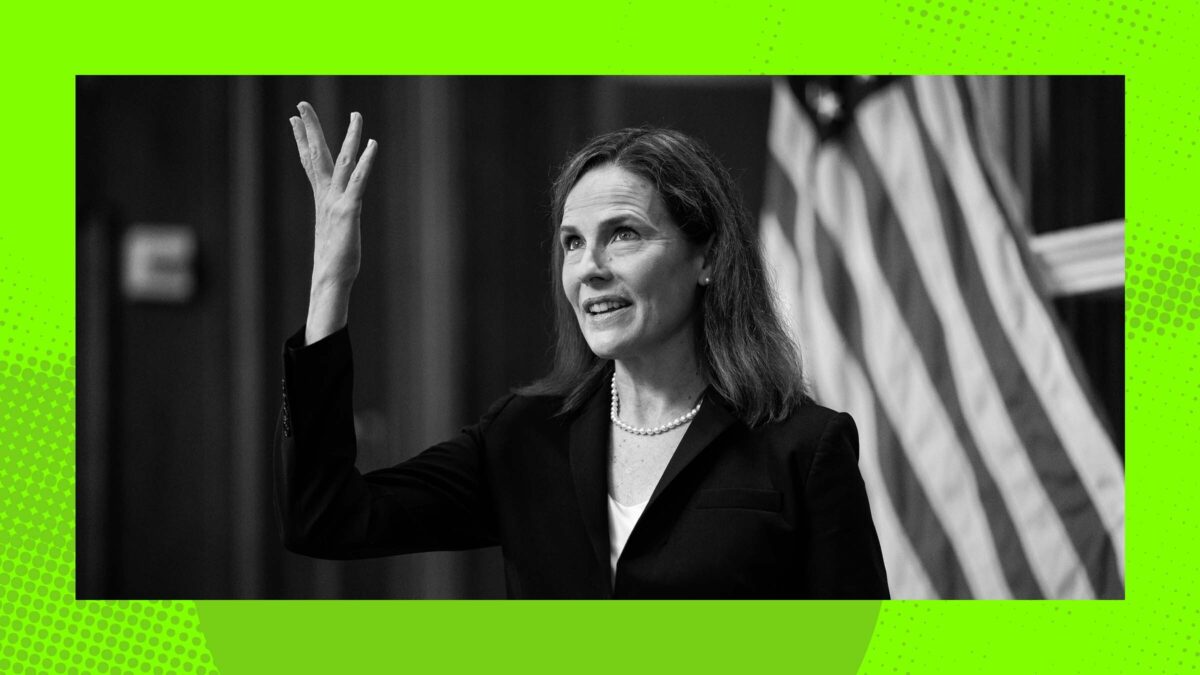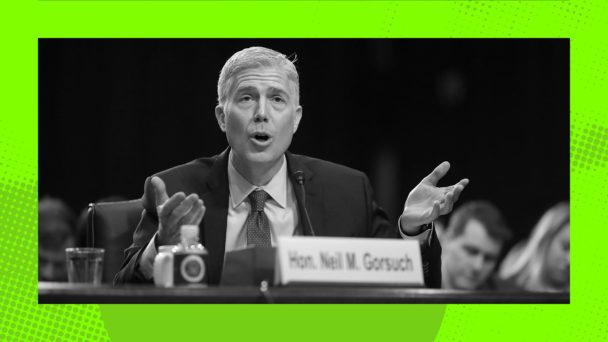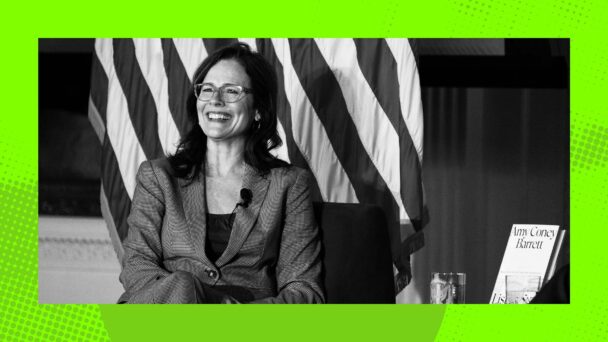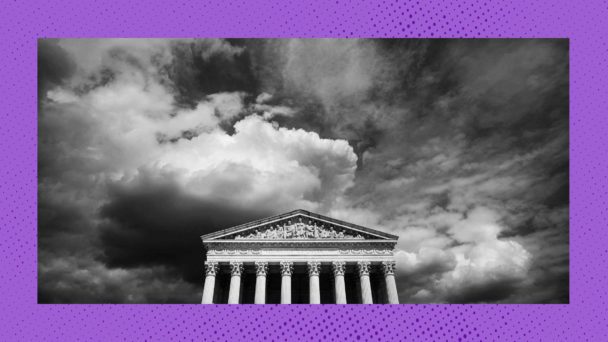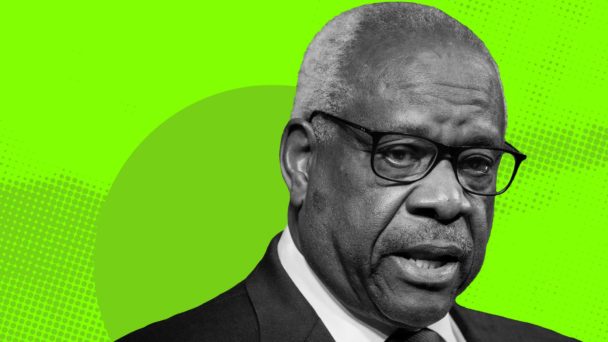In September 2021, about a year after she joined the Supreme Court and six months before she cast the deciding vote to overturn Roe v. Wade, Justice Amy Coney Barrett attempted to assure anxious members of the public that the alignment between this seemingly inevitable result and the policy platform of the Republican Party was merely a coincidence.
“My goal today is to convince you that this Court is not comprised of a bunch of partisan hacks,” she told an audience at the University of Louisville. (An ambitious argument to make, given that Barrett was speaking at the McConnell Center, named for the Republican Senate Majority Leader who rammed through her confirmation just days before President Donald Trump lost the 2020 election, and who literally introduced Barrett prior to her remarks.) Barrett went on to complain about “hot takes on Twitter” that make Supreme Court decisions “seem results-oriented,” and she distinguished between the “judicial philosophies” that purportedly guide the Court’s work, and “political” considerations that ostensibly have nothing to do with it.
“Sometimes, I don’t like the results of my decisions,” Barrett said. “But it’s not my job to decide cases based on the outcome I want.”
Now, Barrett has written an entire book about the subject: Listening to the Law, which publishing industry sources described to Politico in 2021 as—I swear this is real—an exposition on her belief that “judges are not supposed to bring their personal feelings into how they rule.” As a Supreme Court justice, Barrett’s salary is around $300,000. For Listening to the Law, her publisher reportedly paid her a $2 million advance.
Earlier this week, CNN published the first details from Listening to the Law, which even by milquetoast Supreme Court memoir-adjusted standards does not appear to be groundbreaking stuff. Barrett warns readers from the jump that she will not discuss internal deliberations about specific cases, which is the sort of thing about which a person choosing to spend their valuable time on this earth reading a Supreme Court justice’s book might hope to learn. She apparently limits her discussion of her vote to overturn Roe to a high-level recap of Justice Samuel Alito’s majority opinion, in the classic style of middle school students straining by any means necessary to hit the page minimum on their book report. She sprinkles in bromides like “the job of every justice is to do his or her best by the law,” which is the jurisprudential equivalent of a “Live~Laugh~Love” shiplap sign covering up a hole in the drywall at your Airbnb.
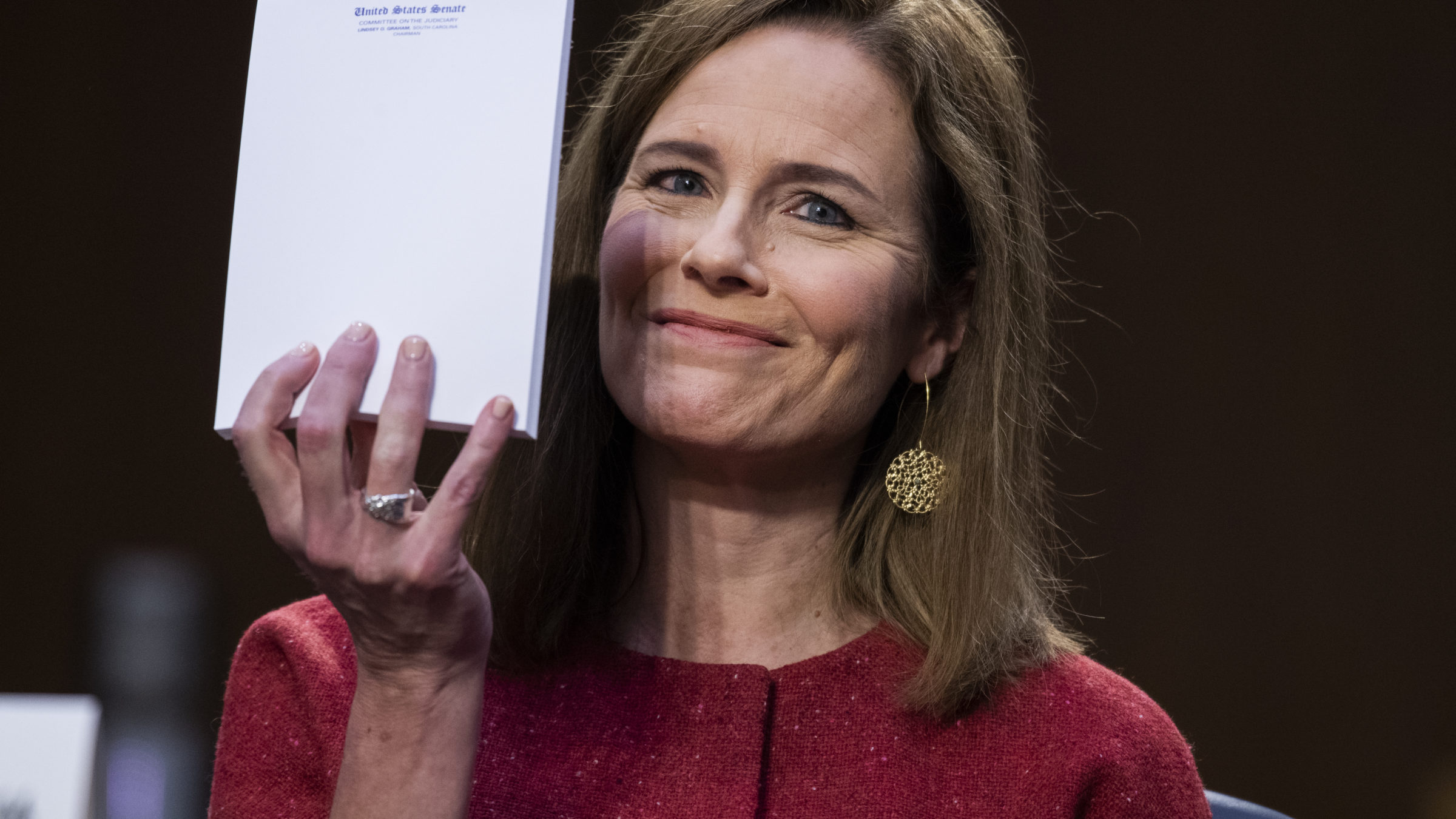
(Photo by Tom Williams-Pool/Getty Images)
Less interesting than the contents of Barrett’s book, in my view, is her (and her publisher’s) strategy for promoting it. Her upcoming tour stops include the presidential libraries of Richard Nixon, alongside conservative commentator Hugh Hewitt; Ronald Reagan, with Reagan Foundation Chair Fred Ryan; and Lyndon Johnson, with historian Mark Updegrove. (The required lapse of time before a conservative justice deems it acceptable to be seen at the library of a Democratic president is, apparently, five and a half decades.)
To date, the most normie event on Barrett’s calendar is probably an appearance at the National Constitution Center, a nonpartisan nonprofit best known for hosting presidential debates. After publication of this article, CBS News announced that it would air an interview with Barrett this upcoming Sunday. Given that CBS News, fresh off settling Trump’s lawsuit against 60 Minutes for $16 million in order to secure regulatory approval of a lucrative proposed merger, is now reportedly in talks to acquire The Free Press and hand Weiss a prominent role at CBS News, whether it still qualifies as “normie” these days is, to put it generously, a matter of some debate.
Otherwise, Barrett is speaking to ideologically friendly audiences: At Notre Dame, where she attended law school and later returned to teach, she is scheduled to appear in conversation with a fellow conservative law professor. At a summit hosted by SCOTUSblog, she will chat with a Trump appointee to the Ninth Circuit. At the National Book Festival, she will take the stage with, for some godforsaken reason, the hedge fund guy who recently bought the Baltimore Orioles. Barrett’s SCOTUSblog summit appearance should not be confused with her upcoming guest spot on Advisory Opinions, a podcast hosted by two conservative pundits at The Dispatch, which acquired SCOTUSblog earlier this year.
Perhaps the most telling stop on Barrett’s tour is also the first: tonight’s Lincoln Center appearance with Bari Weiss of The Free Press, the preferred source of political commentary for investment bankers who decided to become Republicans because they can’t use the r-word at work anymore. The Free Press also got the honor of publishing the first official excerpt of Listening to the Law, and praised Barrett for understanding that the Court’s role is not to “promote justice,” as some would foolishly assume, but only to “judge what the law requires.” (The Free Press’s event page further describes the Court as “critical to the American project, as it remains largely as our Founding Fathers designed it: the final arbiter of what’s constitutional and what’s not”—an assertion which indicates that for all of Bari Weiss’s deficiencies as a thinker and writer, she might be an even worse amateur legal historian.)
Alas, anyone in New York hoping to buy last-minute tickets to hear Weiss ask Barrett clumsy questions about woke culture will be disappointed: According to the Free Press, the event sold out in about three hours. On its website, the Free Press urges would-be attendees to upgrade their subscriptions to get early access to future ticket sales, in the event that another reactionary Supreme Court justice someday elects to appear alongside Bari Weiss in public.
Since she joined the Court five years ago this fall, Barrett has consistently taken the position that the work of interpreting and applying the law is neither political nor ideological—that the justices are not, to return to her words, “a bunch of partisan hacks.” Yet like Justice Neil Gorsuch, who spent his book tour last year ping-ponging between Fox News shows and right-wing podcasts, this curated list of interviewers and settings demonstrates how keenly Barrett understands the particular political and ideological persuasions of people who are willing to pay $32 for a copy of Listening to the Law, and perhaps even more for the privilege of getting her to sign it. A publicity tour that kicks off with an exclusive excerpt in The Free Press is a publicity tour designed to appeal to people who approve of this Court’s agenda, and are glad to express their appreciation by opening their wallets.
Barrett’s mini-tour contrasts with Justice Ketanji Brown Jackson’s, who is still promoting Lovely One, her memoir that was published last year, and Justice Sonia Sotomayor’s, whose latest children’s book, Just Shine! How to Be a Better You, will debut September 9. Jackson’s and Sotomayor’s moderators tend to be to the left of Barrett’s and Gorsuch’s, but mostly by virtue of the fact that they are actual journalists employed by mainstream media outlets, not Ben Shapiro shilling for disaster prep kits during ad breaks. (Notably, both CNN and Newsweek have said that Barrett declined their requests for interviews about the book, because heaven forbid any outlet to the left of The Free Press get her on the record, I guess.) Many of Jackson’s and Sotomayor’s events are also hosted by bookstores and public libraries, which can only be considered “ideological” venues in the sense that conservative culture warriors are obsessed with building a future in which bookstores and public libraries do not exist.
All authors, Supreme Court justices and otherwise, of course try to tailor their messages to their intended audiences. But the asymmetry here is striking: The Democratic appointees are still pitching their books out not only to liberal lawyers and starry-eyed law students, but also to normal people who are reading their local newspapers, dropping by their nearest library branches, or listening to the radio on their morning commutes. By carefully selecting for fellow ideologues and screening everyone else out, Barrett is showing that she is writing only for the conservative activists who put her where she is today: in a life-tenured position of power from which she can implement their shared policy preferences. She has nothing to offer anyone else.
